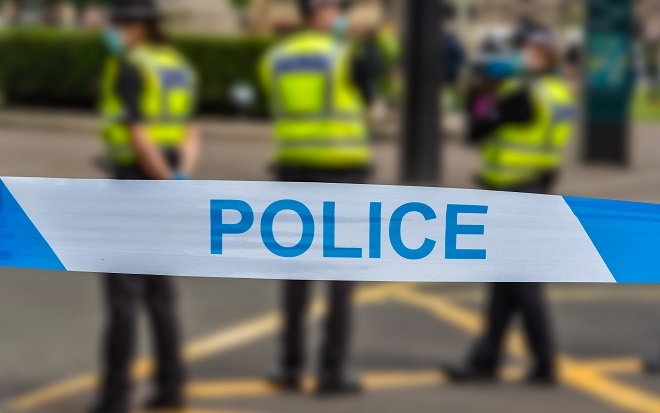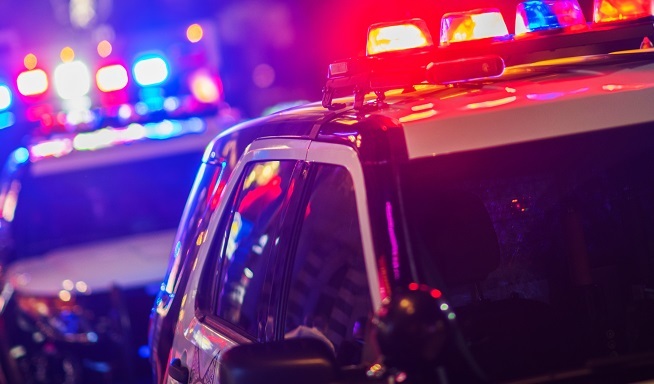
 Data Structure
Data Structure Networking
Networking RDBMS
RDBMS Operating System
Operating System Java
Java MS Excel
MS Excel iOS
iOS HTML
HTML CSS
CSS Android
Android Python
Python C Programming
C Programming C++
C++ C#
C# MongoDB
MongoDB MySQL
MySQL Javascript
Javascript PHP
PHP
- Selected Reading
- UPSC IAS Exams Notes
- Developer's Best Practices
- Questions and Answers
- Effective Resume Writing
- HR Interview Questions
- Computer Glossary
- Who is Who
What is the full form of DGP?
Who is a DGP?
Director General of Police (DGP) is a top-ranking police officer who is capable of directing law enforcement and organisation in a specific region or state. The DGP is usually designated by the government and includes a range of responsibilities, including developing and actualizing law enforcement policies, managing police faculty, and ensuring public security.

In expansion, the DGP plays a pivotal part in maintaining law and order amid basic circumstances such as natural disasters, riots, or other crises. They work closely with other law authorization offices and government authorities to coordinate reactions and guarantee that law and order are maintained.
The qualifications and experience required to become a DGP vary depending on the nation and jurisdiction, but typically include numerous years of experience in law enforcement, as well as specialised training and education. The position of DGP is highly respected and carries significant authority, with the responsibility to ensure the public and maintain law and order in their jurisdiction.
Eligibility to be a DGP
The qualification criteria to become a Director General of Police (DGP) varies depending on the nation and jurisdiction. In most cases, a DGP is appointed by the government, and the criteria for qualification are based on the policies and rules set by the government.
In common, to become a DGP, candidates should have a long time of experience in the police force, beginning from lower ranks and continuously advancing through the hierarchy. They should also have a solid track record of victory in law enforcement, including solving complex cases, maintaining law and order, and successfully managing police personnel.
In addition to experience, candidates may be required to have certain capabilities or certifications, such as a Bachelor's or Master's degree in law, criminology, or a related field. Specialised preparing and instruction in regions such as authority, administration, and public organisation may also be beneficial.
The eligibility criteria for becoming a DGP are rigorous, and candidates are anticipated to have a wide run of skills and involvement in law requirement, organisation, and administration.
Duties of a DGP
Some of the common duties of a DGP are as follows
Law Enforcement The DGP is responsible for maintaining law and order in their jurisdiction, and ensuring that the police force is effective in avoiding and tackling crime.
Policy Development The DGP is responsible for creating and implementing policies related to law enforcement, crime anticipation, and public safety.
Personnel Management The DGP oversees the recruitment, training, and administration of police personnel in their jurisdiction.

Budgeting The DGP is dependable for overseeing the budget for the police constrain, and guaranteeing that assets are utilised viably and proficiently.
Emergency Management The DGP is dependable for managing responses to emergencies, such as natural disasters or terrorist attacks.
Public Relations The DGP is the public face of the police force, and is responsible for maintaining positive relationships with the public and other stakeholders.
Coordination with Other Agencies The DGP works closely with other law authorization agencies and government officials to arrange reactions to crises, and ensure that law and order are maintained.
Conclusion
In conclusion, a Director General of Police (DGP) is a high-ranking police officer who is responsible for overseeing law enforcement and organisation in a specific region or state. The DGP plays a significant part in maintaining law and order, developing and actualizing law enforcement policies, managing police personnel, and guaranteeing public security. They are moreover responsible for managing responses to emergencies and coordinating with other law authorization agencies and government officials. To become a DGP, candidates are required to have a few long encounters within the police drive, a solid track record of victory in law requirement, and specialised preparation and instruction. Overall, the position of DGP is exceedingly regarded and carries significant responsibility to protect the open and keep up law and order in their jurisdiction.
FAQs
Q1. How is a DGP selected?
Ans: The DGP is often chosen by the government based on suggestions made by a committee of experts. Depending on the nation and jurisdiction, different standards may apply for selection and appointment.
Q2. What is the DGP's annual salary?
Ans: Depending on the nation and jurisdiction, a DGP's salary may differ. A DGP's compensation may be comparable to that of a high-ranking government official in some nations while a CEO of a big firm may be comparable in others.
Q3. What are some of the difficulties a DGP faces?
Ans: A few of the difficulties a DGP faces include controlling a sizable and complex police force, keeping the peace in times of crisis, dealing with political pressure and interference, and addressing public concerns and grievances.

